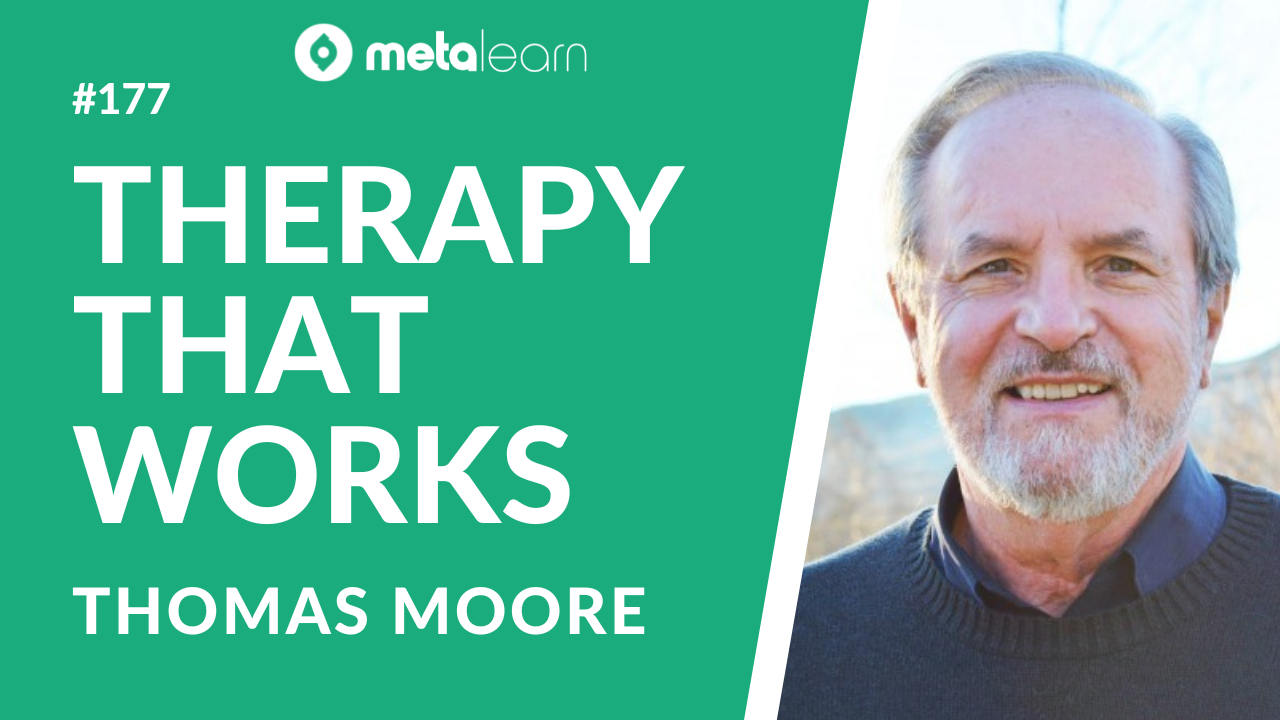ML177: Thomas Moore on Therapy that Works, Myths for Getting Through Dark Times and How To Care for the People Around You
Discover what therapy or "soul care" is and how it works, the myths that to help you through dark times in life and the modern obsession with childhood trauma.

Thomas Moore is a best-selling author, speaker and esteemed psychotherapist. He is best known for the New York Times bestseller Care of the Soul and more than 25 books other books, which explore the soul in all the important areas of our lives including work, sex, marriage, family, religion, and aging.
His latest book Soul Therapy is focused on teaching practitioners and laypeople how to offer soul care to those they are helping; it’s also an exploration of how we’re all therapists in a broader sense of the word - for our friends, family members and colleagues.
In this episode we discuss:
- What therapy or "soul care" is and how it works
- The myths that to help you through dark times in life
- The modern obsession with childhood trauma
This conversation will give you a fresh perspective of therapy and help you separate the signal from the noise in a world of shallow conversations about mental health.
Show Notes
- Introducing Thomas [00:00:37]
- What is the difference between the definition of therapy in the older world and modern society? [00:02:58]
- How does Care of the Soul explore the meaning of psychotherapy? [00:04:06]
- What are some of the misguided practices surrounding psychotherapy today? How can therapists address these issues? [00:05:43]
- What cultural shift has affected how we approach psychotherapy? [00:07:21]
- Thomas shares one of the most remarkable relationships that impacted his perspective on therapy [00:10:05]
- How does the myth of Persephone portray the process of therapy and learning about ourselves? [00:17:03]
- How can difficult, or even painful, narratives turn into helpful discussions about one’s self? [00:23:30]
- Does therapy require a conclusion? How do people know when they’re done with therapy? [00:26:21]
- Why does Thomas suggest being cautious about the endings we experience in life? [00:28:29]
- Why it is important to acknowledge past events and memories as part of us [00:30:22]
- What significance does the Hermes archetype bring to the role of therapists? [00:32:53]
- What’s a skill that one needs when helping someone through therapy, may it be as a friend or as a professional therapist? [00:39:38]
- How can we reframe conversations about childhood and addressing the ‘child’ in us without limiting it to childhood trauma? [00:50:58]
- How parents tend to deny the experience of being a child to their children through restrictive parenting [56:30]
- Why we shouldn’t abandon the child spirit in us and how we experience the child archetype in our new beginnings [01:00:48]
- What can the myth of Medusa help us confront the feeling of being stuck and how to address it in therapy? [01:06:48]
- How education enables the abandonment of the child and results in midlife crisis in people in their 30s [01:12:56]
- What makes one qualified to be a psychotherapist? How can we apply therapeutic methods in our life to live happier? [01:20:52]
- How the institution of therapy has inhibited people to live more therapeutically [01:24:16]
- Closing remarks [01:27:34]
Resources
Follow Thomas online
- Soul Therapy by Thomas Moore
- Care of the Soul by Thomas Moore
- Ageless Soul by Thomas Moore
- Hermes and His Children by Rafael López-Pedraza
- Abandoning the Child by James Hillman
Thomas' previous episodes

